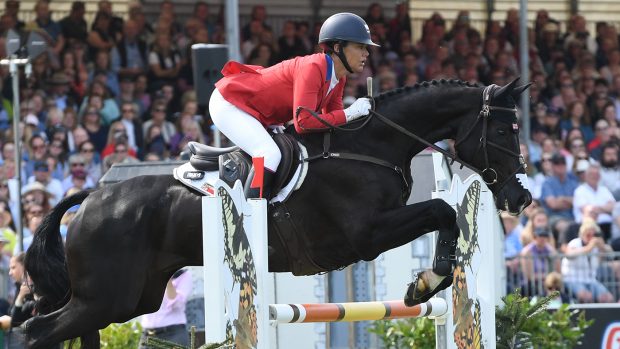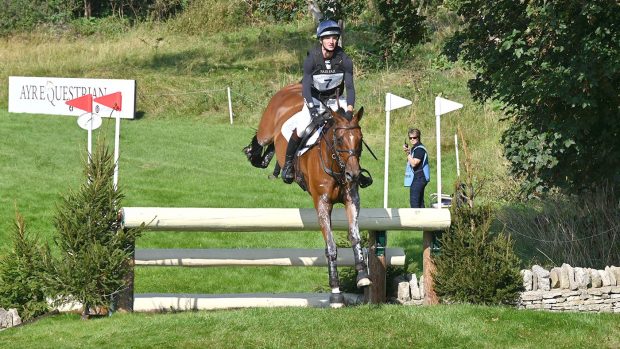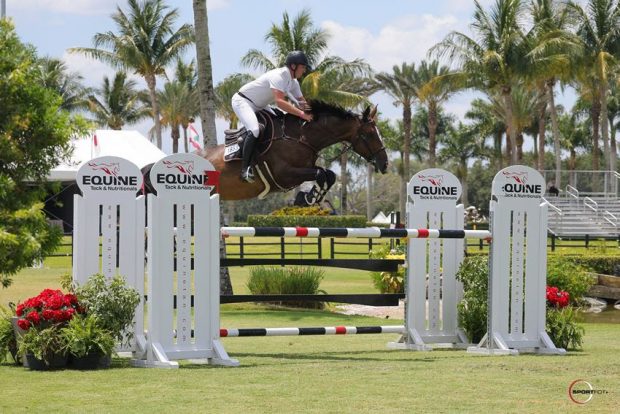Lack of information and openness about menopause is needlessly affecting some women’s wellbeing and enjoyment of horse riding and equestrian sport.
H&H has spoken to numerous riders who found their enjoyment of life and riding had been seriously affected by symptoms, such as severe anxiety, mood swings, weight gain and physical pain – but had no idea at the time these were linked to perimenopause or menopause. Some reached the verge of giving up horses, for many their lifelong passion and source of exercise, and others had stopped riding altogether.
They were all keen to share their stories to help avoid others from suffering in silence – and to show that help is out there.
Females make up 51% of the population, and menopause is most common between the ages of 45 to 55, but can happen at any age.
And while not every woman, or trans or non-binary person, will experience signs, around 25% have serious symptoms. The links between menopause and decreased bone density is also something for riders to understand, especially given this is a risk sport.
Lorna Cameron, a senior lecturer at Hartpury University, has been involved in much research involving women and equestrian sport, and barriers to riding.
She told H&H this is “definitely an area that needs investigating”, which she intends to do, welcoming anyone interested to contact her.
“Of regular riders, 67% are female, and it is believed that for many of those, riding is the only physical exercise they do. So if there’s something creating a barrier to them doing and enjoying that, that’s something that really needs to be addressed and discussed.”
She added that from a welfare aspect, the sport also owes it to horses to investigate anything that makes humans an “easier load”.
Diane Danzebrink started Menopause Support and the #MakeMenopauseMatter campaign after her experience of going into surgical menopause, with no information about what that could mean.
“About three months after my surgery, I started to fall into what I describe as a deep dark pit that I couldn’t get out of,” said Diane.
Diane, a former horse owner, added that she had “heard all the scary stories” about hormone replacement therapy (HRT), and that it was made from pregnant mares’ urine.
“Nobody bothered to tell me that things had changed significantly, and that most HRT was, in fact, now plant based,” she said.
“I didn’t get things like the hot flushes and the night sweats, but I got lots of symptoms that I had no idea were related to menopause.
“Things like crushing anxiety, dreadfully low, flat mood, feeling completely useless, hopeless and worthless. Not wanting to leave the house, being too scared to answer the telephone. It really hit my mental health drastically, to the point where I came incredibly close to taking my own life.
“I tell my story because I don’t want anybody to ever get to that situation.”
‘You don’t have to give up the things you love’
Diane’s campaign is to introduce menopause into the school curriculum (achieved in England in 2020), improve menopause education among GPs, to raise awareness of it within the workplace and for all employers to have support guidelines in place.
“It’s absolutely vital that we talk about it because it’s going to affect half of the population directly, but it’s also going to have an effect on the other half of the population,” she said.
“It can have effects on relationships, careers, on friendships, on things that we love to do. [As a therapist] I have counselled so many women who have given up horse riding or cycling.
“[When it comes to] horse riding it’s very often [owing to] a loss of confidence, they’re experiencing anxiety, they’re struggling with their mood, they’re not the confident rider that they used to be. There’s also the symptoms that nobody ever wants to talk about and some of those symptoms are very intimate.”
She added that for riders, those physical symptoms can become “unbearably uncomfortable to the point of being painful”.
“It’s so important that people have the information before it comes along, so that they can make those informed decisions. And of course, for one in four women, they won’t experience any symptoms at all. They’ll barely know it’s happening. And you might be one of those lucky one in four. But if you’re not, if you’re somebody who does experience symptoms, there are things that you can do about it.
“You don’t have to suffer in silence. You don’t have to give up the thing that you love in your life.”
‘There’s a lot we can do’
“So few people talk about it,” British Equestrian’s human physio and athlete health lead Ashleigh Wallace told H&H.
“This is a phase you’re going through. This isn’t a medical illness or something to be avoided, and knowledge is power.
“People often just think you go straight into it [periods stopping]. But perimenopause can be a couple of years leading up to that.”
She said she sees riders enter a “vicious cycle”, by trying to counteract weight gain by eating less. That coupled with other symptoms such as reduction in strength and sleep disturbances, which mean people are not recovering properly, means it is no wonder some are exhausted.
“It seems frightening, but there is a lot we can do – and riders being riders have a good attitude of getting up and getting on with things,” she said.
She advises looking at diet, fuelling the body for what it needs, rather than starving, and eating plenty of leafy greens, “reds” such as berries, high-quality protein and omega-3s, plus enough sources of calcium. Reducing inflammatory foods, such as crisps and fried foods, can be beneficial in reducing joint pain. Incorporating off-horse high-intensity interval exercises that help promote bone density, like skipping, plus taking vitamin D is important. Prioritising recovery is also a must.
She added that HRTs are a “different world” now compared to in the past, and is something riders can find out more about from a doctor.
H&H also recommends speaking to a medical professional to bust myths, and to discuss the benefits and any associated risks, as with any treatments, to make an informed choice.
Those in connected industries have found they can be the first to help people join the dots. H&H was contacted by mindset and performance psychology coach Jenni Winter-Leach and fitness trainer Ali Cooper, who both said their clients frequently come to them for support and have no idea the symptoms are connected to menopause.
“People will say ‘I’m just not as confident as I used to be, and I don’t really know why’,” said Jenni.
“Very often it is [linked to] perimenopause or menopause – and most are not in any way aware at all that this might be why. There is more information now, but there didn’t used to be much on the impact the change in hormones has on brain and body.”
She said as those changes can happen in some people before other symptoms and periods stop, the connection is not always made. She advises her clients to do some research and speak to a medical professional as the first steps.
“Then that’s when the actual mindset work comes in, because you are not fighting the body. We need to work with the body, there is no point trying to fight it,” she said.
“I think the more we have conversations about these things – that it’s going to happen, it’s ok and there are things that can help you, and you don’t have to suffer in silence – that stops the fear.”
Ali, who can tailor her sessions with menopause symptoms in mind, added that she has often seen that people have “just got used to those feelings” over the years.
“It’s about empowerment and education,” she said.
‘The more this is talked about, the better’
A 2017 Nuffield Health survey found that 45% of respondents did not recognise they could be experiencing symptoms linked to menopause, despite reporting issues such as joint and muscle ache, hot flushes, irregular periods, night sweats, mood swings and poor memory.
And there is also a growing realisation of the impact this is having on women’s careers. A major survey by Newson Health Research and Education found 99% of the 3,800 UK women that responded said their perimenopausal or menopausal symptoms had led to a negative impact on their careers. More than a third called the impact significant. The findings were presented at the Royal College of General Practitioners’ annual conference in October 2021.
There was support for the Balance website and app among the riders H&H spoke to. Founded by GP and menopause specialist Dr Louise Newson, it provides factual, evidence-based information, support and a way of tracking symptoms.
Other advice included having support from friends and family, not being embarrassed to have a dressage test called if memory becomes an issue, asking which doctor would be best to speak to about menopause when contacting the local practice and finding comfortable kit that works – whether protective gear, underwear, or a nicely fitting jacket. There were also suggestions that there could be a gap in the market for manufacturers, for items such as breeches with comfortable waistbands. Quality clothing, that makes people feel good, while accommodating to how some women’s bodies are changing.
“I’m really passionate that we should be the last generation that has to be finding out about this. I feel that the more it is talked about and the more it is something we talk about, the better,” said rider Caroline Wilson, who told H&H her first real experience with menopause-related memory issues was when she was competing at a riding club team dressage competition.
Caroline, who has been “doing dressage tests since I was about 10” and had practised that particular test plenty of times, trotted up the centre line – then her mind went blank.
“After that I felt dreadful, embarrassed and that I’d let my team down. I just wanted to go home. I honestly thought I was going potty,” she said. “I was getting very forgetful, I thought maybe it was because I had a lot going on.
“I put it behind me and a couple of weeks later I was on a team again at a showjumping competition. We jumped a lovely round, then I saw the look on people’s faces and realised that I’d missed a fence. At that point I thought that team competition wasn’t for me any more.”
Then lockdown happened, and with it came the boom in podcasts. Listening to Liz Earle, Dr Newson and The Happy Menopause podcasts proved a turning point.
She went to see a doctor and is now in a “much better place”.
“I came away feeling much more positive and very quickly saw the benefits. I sat a British Horse Society exam in the spring, and the thought of doing that was one of the things that spurred me on to talk to her,” she said.
‘Not just women need to talk’
“It’s about not stopping the things you love doing, but finding ways to keep going with the things you want to do,” said rider Sam Hooper, who is passionate about helping people understand symptoms and supporting them.
Ali Phillips is among those who came “very close to quitting” riding, and her symptoms also had an impact on her professional life.
“I had anxiety, low mood, lost all my confidence, hot flushes, itchy skin – you name it,” she said.
She added that she initially thought not wanting to ride was owing to lockdown, and not wanting to end up in hospital if she fell off. But someone close to her pointed out that with the other symptoms she was experiencing, it would be a good idea to speak to a doctor.
“I started on HRT in October last year, and at the beginning of last week, I cantered my horse for the first time,” she said.
“Getting the right support from your doctor is important, but also from your friends. The majority of people that know me know that I’m perimenopausal, I haven’t hidden it.
“And it isn’t just women that need to talk about it, the men do too. If the men don’t know what we are going through, how are they supposed to deal with it?”
She said it is common to joke about forgetting dressage tests, but there could be another underlying reason.
“Being perimenopausal doesn’t mean that you are ill. The more people know, the better they will be at getting to the doctors with the right information,” she said.
Kirsty Cyprus shares her experiences on her Charlie Cob Can Facebook page, and is also arranging a hacking challenge through April to raise awareness.
She told H&H about the realities of living with brittle bones, as well other symptoms including insomnia, and said she was “astounded” by the “unbelievably” positive response to her challenge.
“It is a normal part of life and I don’t want people to think they can’t have help or support or talk to each other about it,” she said.
She added that with the impact perimenopause and menopause can have on bones and confidence, it is also about normalising people choosing to wear a body protector or air vest.
Her symptoms did affect her riding, but her horses were also a comfort.
“If I didn’t have them, I don’t think I would have got out of bed most mornings. They are what keep you going and you have that bond – they mop your tears up or you go out riding and try to keep yourself busy. But you still have to be aware of what is happening and the help out there, as having some support of some kind to get through it [is really important],” she said.
You might also be interested in:

Subscribe to Horse & Hound this spring for great savings
Horse & Hound magazine, out every Thursday, is packed with all the latest news and reports, as well as interviews, specials, nostalgia, vet and training advice. Find how you can enjoy the magazine delivered to your door every week, plus options to upgrade your subscription to access our online service that brings you breaking news and reports as well as other benefits.





